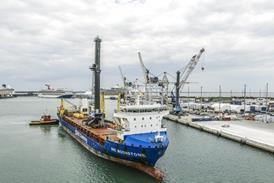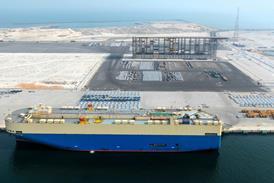Covid-19 has caused widespread disruption to the freight forwarding market, but the post-pandemic environment is emerging and the sector is adapting to the new realities, according to Transport Intelligence’s (Ti) Global Freight Forwarding 2020 report.

The industry started the year on the back foot. The US-China trade war, declining volumes and a slowdown in the automotive sector contributed to the worst year in more than a decade in 2019, said Ti, with the market contracting by 1.9 percent.
Ti’s Covid-19 impact analysis predicts that a second consecutive year of contraction on global freight forwarding is all but inevitable, with as much as 7.5 percent of market value set to disappear in 2020.
“This year may come to be the most challenging the forwarding market has ever faced – more so than the 2008/09 recession even. Transitioning from the trade war and general slowdown in global trade in 2019 to the Covid-19 pandemic and the dysfunction it is causing this year will be extremely difficult to navigate,” said Nick Bailey, head of research at Ti.
“Globally, the forwarding market is at an inflection point. Those that can best adapt daily operations, organisational strategy and effectiveness, and make the best use of new technology, will be most prepared for the changes coming.”
Despite this challenging environment, positive signs are already beginning to emerge. Amid volatility on both the supply and demand sides, primary research undertaken by Ti shows a degree of stability amongst shippers’ modal choices and freight procurement strategies. In both instances, around half of all those surveyed have maintained both their modal and procurement mix, maintaining established relationships throughout the pandemic, while also making use of new spot market tools when needed.
It is certain that 2020 will be a challenging year for freight forwarders globally, and the largest players will be looking to secure market share. Analysis by Ti shows a significant shake-up in 2019 with the newly combined DSV Panalpina making strides to become the largest airfreight forwarder by revenue globally. It is now also the third largest forwarder globally.
Michael Clover, Ti’s head of commercial development, commented: “2020 will now inevitably follow 2019 as another very difficult year for freight forwarders, but at the mid-point of the year we are beginning to see the immediate shock of Covid-19 subside and can start to map the future of the market in a post-Covid world.
“Although Ti’s primary research shows that modal and procurement choices remained relatively stable during the crisis, interviews with major forwarders suggest that a reappraisal of strategy is already under way as many look to set themselves up for a world of changing trade patterns, higher inventory, rising protectionism and greater flexibility”.
















